Photo: Kris Herrmann
Heavy music naturally lends itself to heavy subject matter. Death metal’s buzzsaw guitar riffs and hellish screams personify the apocalyptic violence of its lyrics; the raw, reflexive anger of hardcore punk translates the urgency of its socio-political calls to action; and the chest-puffing beats of hardcore hip-hop set a menacing scene for tales of street struggle and danger. The same is true for the Michigan band Greet Death, who sing about the debilitating heaviness of depression and anxiety through a bludgeoning conglomerate of shoegaze, grunge and slowcore.
After gaining an unexpected underground following from their 2017 debut Dixieland, which saw primary songwriters/vocalists Sam Boyhtari and Logan Gaval pleading for an inkling of pleasure “in the midst of a suicide summer”, the trio signed to Deathwish Inc. for their exceptional 2019 album New Hell. As the title implies, the record wades through two years that felt like eternal misery to Boyhtari (bass), Gaval (guitar) and eventually their drummer Jim Versluis.
“I think about killing myself every day, basically,” Gaval says while his bandmates snicker.
He’s being facetious about the dull warehouse job he works between tours, explaining how he “fucked up and tried too hard” and now has more responsibilities. Dark sarcasm seems to be his knee-jerk tone, which works well for him as the naturally hilarious wise-guy of the group. Boyharti and Versluis are more mild-mannered, but all three of them are thoughtful, perceptive and clearly invested in their art.
Versluis works as a baker and Boyharti has been working at an online music retailer in Chicago for a couple years, but none of them are thrilled to be back on the grind between their last tour and their next one, a month-long North American run opening for Deafheaven. An opportunity like that was completely unimaginable to them less than a year ago, let alone during the early days of Boyharti and Gaval’s musical endeavors.
Contrary to their Bandcamp page’s location being set to Flint, the two met in first grade in their rural hometown of Davisburg, MI. “People from Michigan don’t even know where that is,” Boyharti jokes, clarifying that it’s just 45 minutes from either Detroit or Ann Arbor. They claimed Flint as their homebase because that’s where they had their first opportunities to gig in high school. Versluis didn’t join the band until after Dixieland was released, so the other guys spent their adolescence playing with another drummer, cycling through a series of vastly different musical styles but never committing to any of them for long enough to record anything.
“We would write ten songs and then completely scrap the identity of the band,” Gaval says.
They describe their high school sound as indie-surf a la Surfer Blood, Best Coast and Wavves, but when they entered college they did a 180 and started making improvisational no wave music. “We got really into that band Swans forever ago and we were like, ‘Dude let’s just fucking do the same thing for 15 minutes, so sick,’ Gaval says. “There was a period where I didn’t know if I could write a song with more than two lines.”
“That specific period I think we had three songs and that was it,” Boyharti adds. “And it was like 30 minutes of music [that] was this weird blend of scary pop but mostly noise-drone. And that’s the craziest part of our history.”
In the thick of that era they played a show with the Indiana doom-gaze band Cloakroom—who Greet Death are now frequently compared to—and their performance recalibrated their approach to songwriting.
“That band kind of changed the way I thought about live music,” Gaval says. “Just in terms of being loud and having heavy, pretty songs.”
In addition to Cloakroom, Gaval began to draw inspiration from the guitar style of ‘90s acts like Smashing Pumpkins and Hum—but with a specific emphasis on strong melodies.
“Mine and Sam’s focus has always been on songwriting,” Gaval says. And a lot of those band’s songs get kind of boring. Specifically Hum. Like, that band is sick as fuck until they start playing literal buttrock riffs—the same with Smashing Pumpkins.”
In 2016 they finally put out a digital seven-inch that solidified their sound, and Dixieland arrived the following year. The record was essentially a collection of songs they’d written over the last couple years, including a few passages from their no wave phase that they reworked into short interludes. They borrowed the name Dixieland from a local flea market because Gaval would drive past its sign (pictured on the cover art) every day for work, and they liked how a flea market represented the album’s disconnectedness.
Despite its slight scatteredness, their sound was defined, the production was terrific, and its lyrics constructed the world the band would write more vividly about on New Hell. However, even though Dixieland found a small yet dedicated audience, Boyharti and Gaval knew their old drummer was leaving before it dropped and they weren’t in good places emotionally or physically. Both of them were working dead-end fast food jobs that they loathed and the uncertainty of the band made them feel hopeless about the one thing they cared about doing.
“I think Logan and I had that shared vision of extreme day-to-day monotony,” Boyharti says. “A lot of crushing monotony of doing the same thing every day and the same kind of relationships with the people around you.”
“I think in between Dixieland and New Hell we were binge drinking a lot,” Gaval says. “I feel like that was definitely a thing where I was self-medicating with alcohol. . .Drinking and getting wasted every night.”
“I was also getting high to go into my fast food job so I wouldn’t feel like dying,” he adds.
Their lives were miserable and you can really feel it in the encumbered riffs and bleary-eyed vocal affects on New Hell. Then there are the lyrics, which were informed by their abject hopelessness, heartbreak and the types of thoughts that swim up when self-medication isn’t even working anymore.
“Every single day I fantasize / Different ways my body could die,” Gaval murmurs during “Crush”. “What do I do if I don’t feel like getting high again? / Getting nowhere / Going nowhere,” Boyharti sings during “Do You Feel Nothing?”, which was the first song he wrote for the record after many months of depressed stasis.
“I was at the point where I didn’t even want to drink,” Boyharti says. “Because I’d get depressed before I’d do it because I’d know it’s not gonna help. It’s not gonna change anything. . .It’s probably the most direct thing I’ve ever written—it’s probably my favorite thing I’ve ever written. Because it’s just a complete emotional cry. I don’t know if it’s a cry for help, but a futile cry. What do you do when you can’t do anything because you just get discouraged before you even do it? Whether that’s writing a song, drinking.”
For Gaval, oversleeping is a potent topic on the record.
“There’s a lot of lyrics about sleeping all day and not wanting to wake up,” he says. “Sam would work at Hungry Howie’s and I’d work at Dairy Queen and we’d just get off shift and I’d go to Sam’s house back when he lived in Michigan and we’d play videogames all night until literally 5 or 6 in the morning. I have a memory of us sleeping in until 5 or 6 in the afternoon and then going to fucking On The Border, which is a shitty tex-mex restaurant.”
Although those two wrote all the lyrics on the album, and Gaval got the album’s title from a phrase his co-worker sighed out during a particularly bad shift, Versluis got in trouble with the law shortly before the record dropped and it completely altered his relationship with the subject matter. To him, the idea of a “new hell”—that everything bad just keeps getting worse—became a reality.
“I just felt like I was living inside the record,” he says. “That sounds really, really shitty and weird but I felt like all I really had was my friends and the music. Not many things to look forward to except for what the band was going to do.”
Now, a few months after its release, the band are cautiously optimistic that things are getting better. Since they wrote the album they got a record deal and went on a few promising tours—the best of which is yet to come. Part of the reason Gaval hates his job so much is because he figures he can live off of touring now, which is a promising sign for the future of the band. Sometime during the writing of New Hell, Boyharti finally sought professional help for his mental health issues, which he’s incredibly thankful he did.
However, even in the brutally pessimistic lyrics on the album, he thinks there’s optimism to be found. If not overt positivity (which there’s none of), then at least the catharsis of turning his worst feelings into something creative and hearing from fans that his lyrics mean something to them.
“The art that means the most to me is the shit that makes me feel less alone,” he says. “So my goal is to translate that and turn what I’m feeling into something that helps someone else, and hopefully inspire them to make something themselves. Because I think one of the functions of art is to inspire more art.”
Greet Death will play Super Dark Monday at Desperate Annie’s in Saratoga on March 30

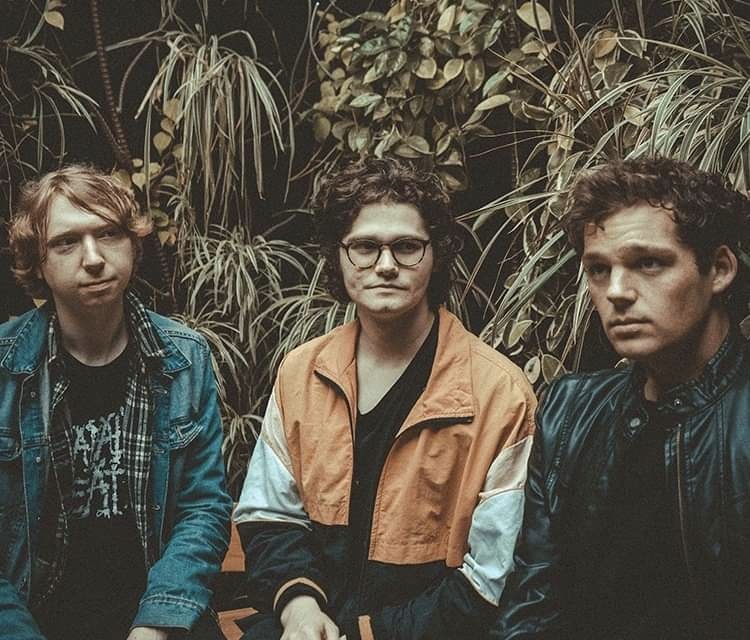
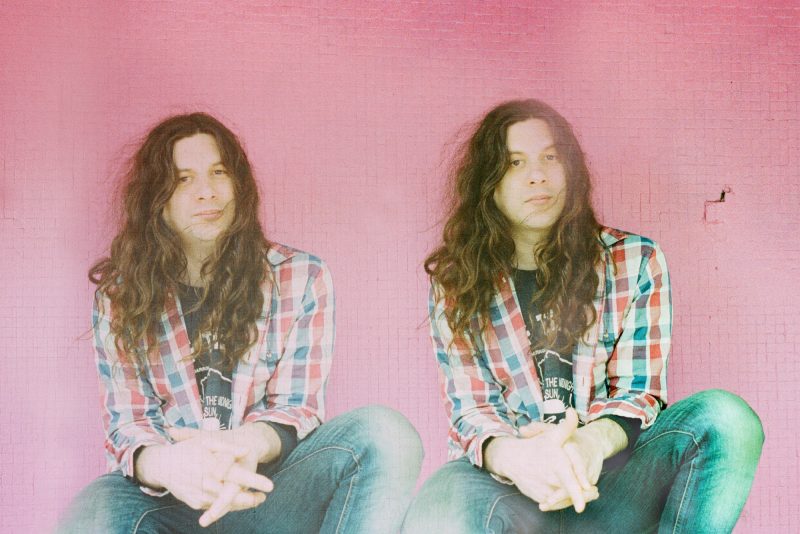
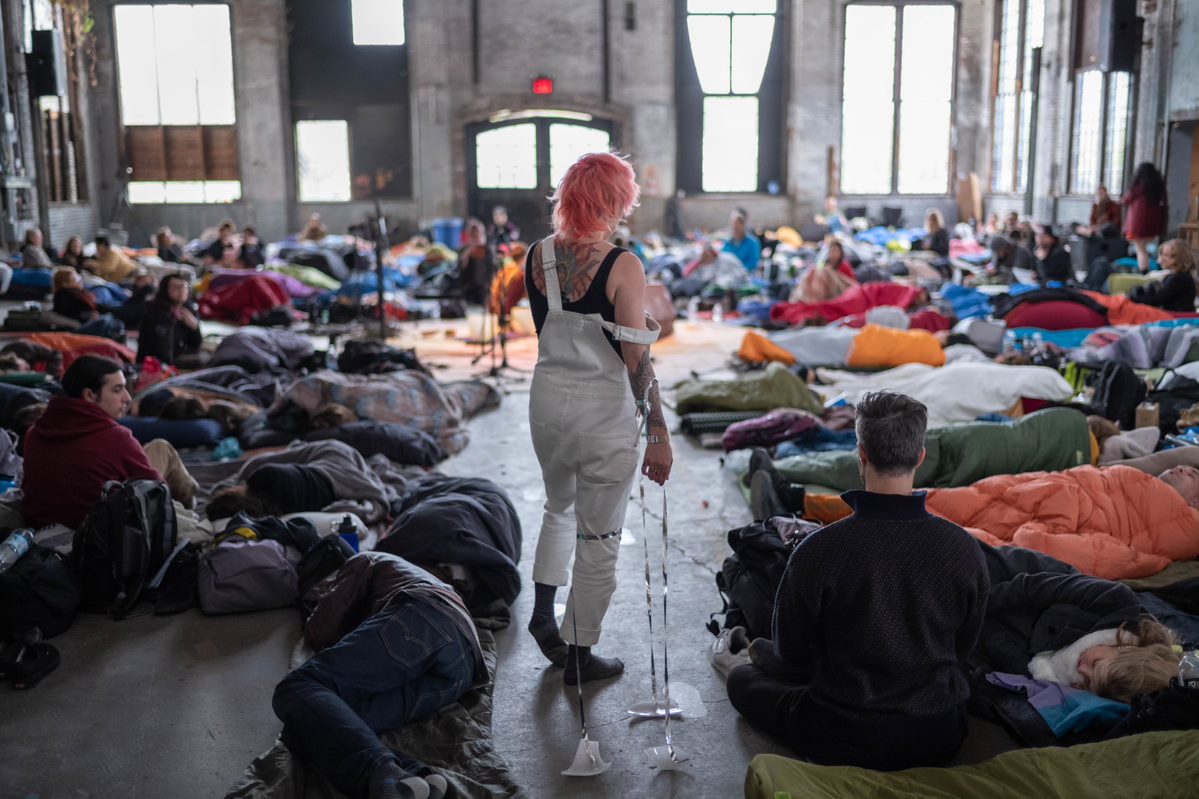
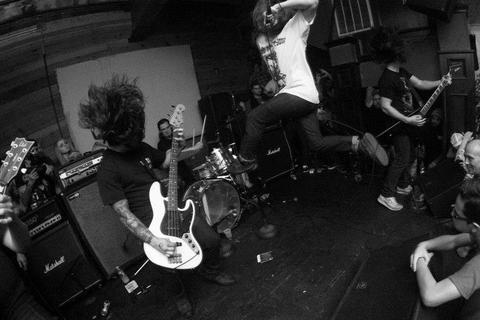
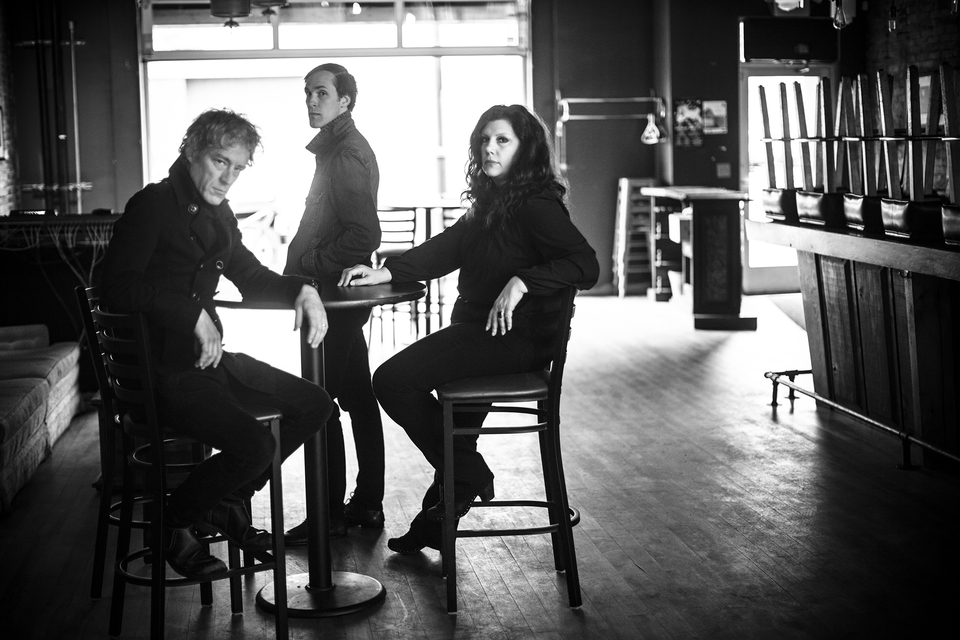
Trackbacks/Pingbacks